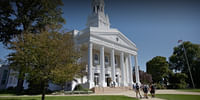In addition, our students should recognize the ongoing?tensions over the nature of identity: ethnic, racial, national, and global. To this end, we hope to develop?ways to analyze issues that confront them as citizens of communities, nations, and the world. Our students?should expect to confront issues of social responsibility, human rights and dignity, and their role in supporting?and encouraging social justice.
The History programme from?Marist College?systematically exposes students to three principal culture areas: the United States, Europe, and the non-Western world. Within that framework, students have ample opportunity to pursue, in consultation?with their advisors, specialized interests as career, life, or further educational goals may require. While we do not?require study of a modern foreign language, we strongly recommend that path.
A study of history provides students with a wide variety of skills both for living and work. A comprehension of?the past and the dynamics of change illuminates the present and enables students not only to exercise responsible?citizenship, but?to enjoy autonomy in an increasingly complex world. In addition, the study and understanding of history,?as the other?liberal arts, instills or enhances a capacity for analysis and synthesis, and these transferable?skills have applicability to a wide range of careers.?
History opens the door to graduate studies or professional schools, for example, law school or secondary education. The history curriculum also makes a particular effort to advance a?central mission of Marist, to enhance our students' awareness of enduring value-related issues.






.jpeg?tr=h-40,w-40,c-force)


